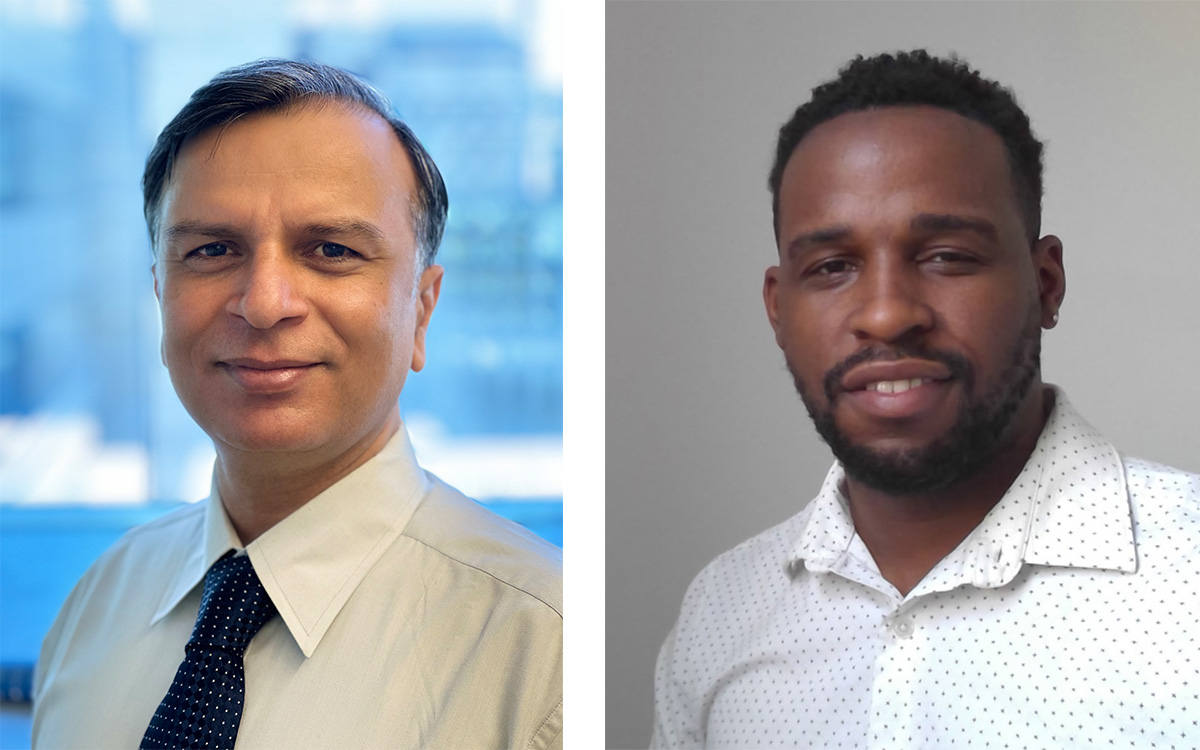The Frontiers in Congenital Disorders of Glycosylation Consortium (FCDGC) has named Aryal Rajindra as their 2023 Pilot & Feasibility Project Awardee and Idris Wazeerud-din as their Career Enhancement Fellow.
Dr. Aryal’s interest is in integrating biochemistry, glycobiology, and cell biology to explore the role of glycosylation in human health and diseases. Dr. Aryal is an instructor in the Department of Surgery at Harvard Medical School (HMS) and Beth Israel Deaconess Medical Center. His FCDGC project is built on his collaborative studies with pediatricians and involves altered O-glycosylation of glycoproteins in a newly discovered heritable mutation in the human gene COSMC (C1GALT1C1), which is X-linked; this mutation results in a multi-systemic disorder along with altered O-glycosylation of the immunoglobulin IgA1 (galactose-deficient IgA1 or Gd-IgA1). This project aims to understand the low steady-state level of the A20D-COSMC mutation resulting in COSMC-CDG, and explores the possibility of developing Gd-IgA1 as a serum biomarker. Immortalized cells from the COSMC-CDG patients and tagged versions of the A20D-COSMC protein will be studied to better understand COSMC-CDG pathogenesis. We will utilize our new mass-spectrometry methods to characterize O-glycans at specific amino acid sites on IgA1 from COSMC-CDG patients serum. Additionally, we will also study the unbound Gd-IgA1 and Gd-IgA1 present within circulating immune complexes in the COSMC-CDG patients serum and other similar diseases using Luminex platform-based analytics. These studies will provide novel insights into COSMC-CDG pathogenesis and assist in developing biomarkers for early diagnostic and disease management of this and other related diseases.
Dr. Wazeerud-din received his PhD degree in 2018 and is currently a mass spectrometry specialist in the Children’s Hospital of Philadelphia (CHOP) metabolic and advanced diagnostic lab with 1.5 years of experiences in performing and analyzing clinical glycomics data for CDG diagnoses. This fellowship award will provide opportunities for Dr, Wazeerund-din to learn how to translate cutting edge research into clinical use.
Dr. Wazeerud-din will start his clinical training in American Board of Medical Genetics and Genomics/ clinical biochemical genetics/training program in July this year while carrying out his clinical research in studying metabolic flux in CDG. He is committed to become a clinical biochemical geneticist and to have an academic career. During his clinical training, he will be particularly trained in the laboratory diagnosis of CDG and actively participate in the studies of CDG natural history and clinical trials at Children’s Hospital of Philadelphia as well as doing clinical rotation at other FCDGC site.
At the end of Dr. Wazeerud-din’s fellowship, he will be ready to design research strategy independently and submit K and other NIH grant applications for young investigators.
The Frontiers in Congenital Disorders of Glycosylation Consortium (FCDGC) is part of the Rare Diseases Clinical Research Network (RDCRN), which is funded by the National Institutes of Health (NIH) and led by the National Center for Advancing Translational Sciences (NCATS) through its Division of Rare Diseases Research Innovation (DRDRI). FCDGC is funded under grant number U54NS115198 as a collaboration between NCATS, the National Institute of Neurological Disorders and Stroke (NINDS), the Eunice Kennedy Shriver National Institute of Child Health and Human Development (NICHD), and the Office of Dietary Supplements (ODS).


